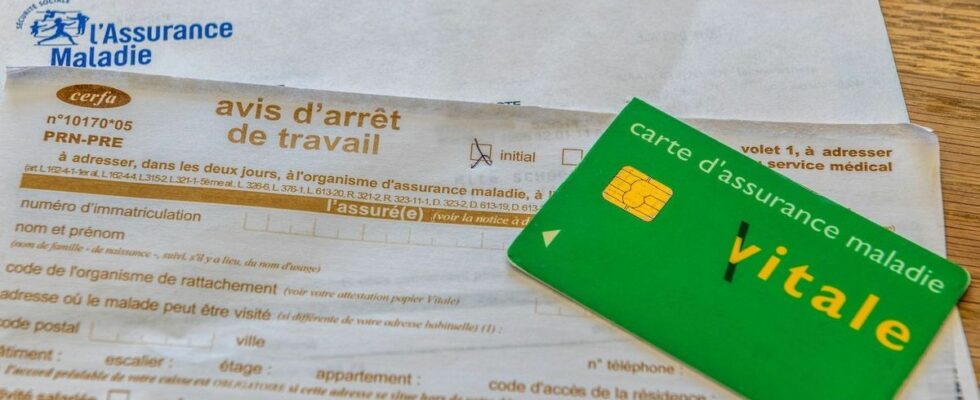Published on
Updated
Reading 2 min.
in collaboration with
Frédéric Villeneuve (General practitioner)
Have you often encountered difficulties obtaining sick leave? The government plans to resolve this problem by allowing employees to self-declare sick. Explanations.
Taking sick leave yourself may soon be possible. This is at least one avenue that the government is seriously considering, given the shortage of doctors and the weight of the administrative tasks that fall to them.
A formula already adopted by other countries
In the United Kingdom, Quebec and Portugal, self-declaring sick leave is already possible.
A measure, which allows both to free up “medical time” (the use of this mechanism makes it possible to free up thousands of consultations) but also to simplify the administrative process – for the patient and the doctor.
The Minister for Health, questioned on TF1 on this subject, rightly said he wanted “open (this topic) with employers. We must, with employer networks, discuss the feasibility of this measure, which would free up medical time.”he said.
“The question is indeed to see its supervision and ensure that it is not a new channel of abuse, it is a balance to find, but in any case the measure deserves to be discussed” and “we will look at it from close“, he added.
Indeed, the main obstacle put forward by certain doctors is the risk of “abuse” of employees. However, several studies conducted in countries that have already adopted this measure have claimed to have found no evidence of fraud.
The Court of Auditors says “Yes”
Furthermore, work stoppages self-declared by French employees would be of very short duration – 3 days at most, according to the idea formulated Monday May 13 by the Court of Auditors in a report.
Concretely, this system would involve establishing “another regulation system, for example one or two waiting days“which would not be compensated either by Health Insurance or by the employer,” confided Pierre Moscovici, First President of the Court of Auditors.
“A minimum period of one or two days deemed non-compensable” should thus be created.
Enough to dissuade more than a few from abusing it. And at the same time, knowing that today these days of deficiencies are most often compensated by the company (via branch agreements, company agreements or provisions specific to collective agreements), we can wonder if this new (“non-compensable days”) will be compatible with existing provisions and if, in the end, the sick employee will not be out of pocket… This will of course deter abuse but potentially the desire to stop for work. benign pathologies, even if it means passing them on to his “kind colleagues”.
Dr Frédéric Villeneuve, general practitioner: “The French will play the game”
For Frédéric Villeneuve, general practitioner, this reform is an excellent idea.
“In areas whereHealth care access is complicated, that would be particularly great. But this measure would also make it possible to simplify the daily lives of doctors, polluted by administrative documents. This would be a short-term stoppage – 0-3 days – which would cover benign pathologies, such as gastroenteritis or nasopharyngitis. The patients concerned only come for consultation to obtain the famous ruling. By allowing them to self-declare sick, this would free up consultation time… but also prevent doctors from putting themselves in a difficult situation. Because when we cannot see a patient, and they make an appointment two days later, we must backdate the prescription. In other words, by wanting to help him, we put ourselves in a risky situation,” confides the doctor.
Many doctors say that “favorable” to this extent, estimates the general practitioner, who assures that the French, not compensated during this judgment “will play the game“, by not committing abuse.
